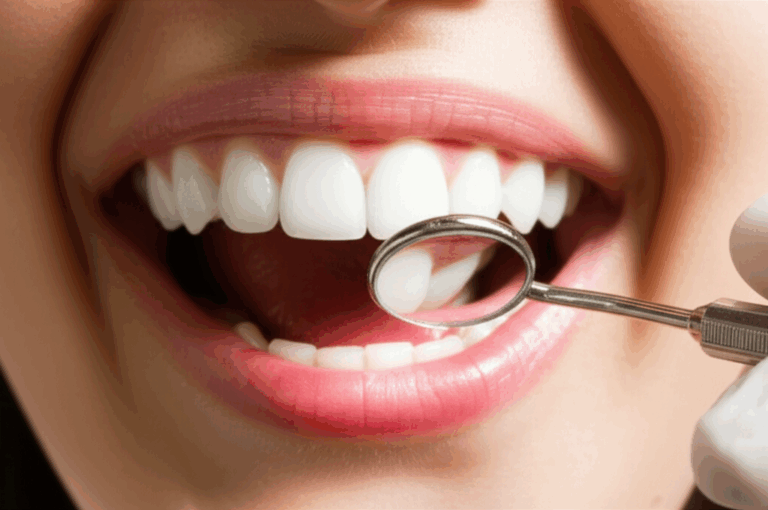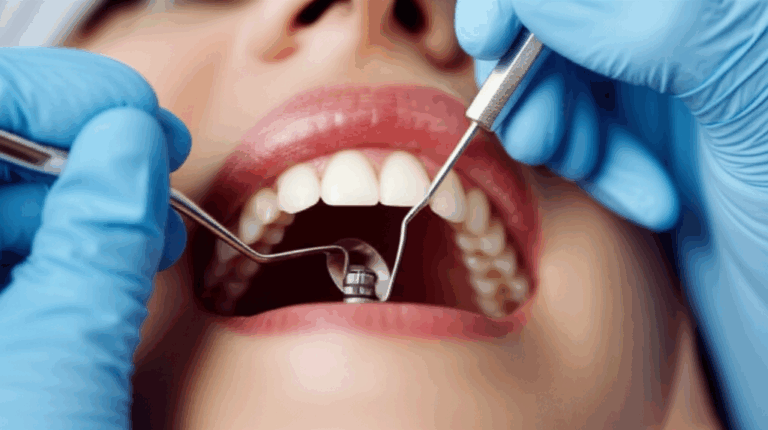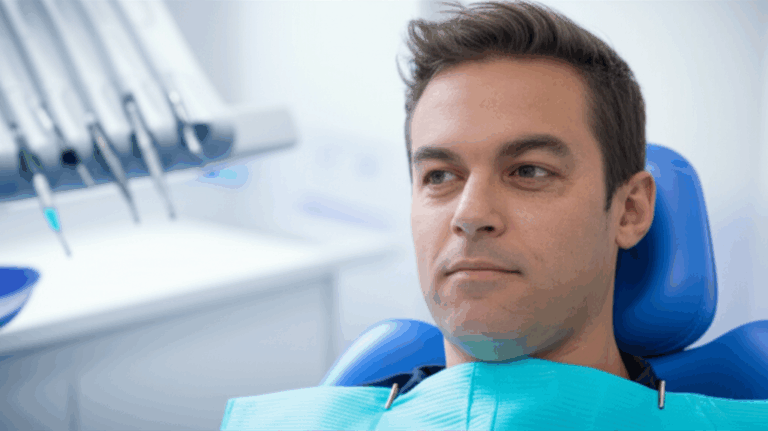
Working as a Foreign Dentist in the UK: A Step-by-Step Guide
Table of Contents
- Eligibility and Qualification Recognition
- English Language Proficiency
- The ORE Pathway
- The LDS RCS Eng Pathway
- GDC Application and Documentation
- Skilled Worker Visa
- Health and Care Visa
- Immigration Health Surcharge (IHS)
- Dependent Visas
- NHS vs Private Practice
- The PLVE Pathway (Performer Number)
- Smart Job Search Strategies
- UK-Optimised CV and Interviews
- Dental Indemnity Insurance
- Enhanced CPD (ECPD) and Reflective Practice
- DBS Checks
- Getting an NHS Performer Number
- National Insurance, Tax, and Pensions
- Cost of Living Essentials
- Banking and Your Financial Setup
- Healthcare Access
- Culture, Etiquette, and Day-to-Day Practice
- Common Hurdles
- Advice That Helped Me
Introduction: Why I Chose the UK and What I Wish I Knew
I moved to the UK as a dentist with a degree from abroad because I wanted a lot of different types of patients and a health system where science mattered. I also wanted a good way to stay and work long-term. I found both here. The whole thing was hard work. There was lots of paperwork, too. If you plan it out and stick with it, you’ll make it.
In this guide, I’ll show you exactly how I did it and what I learned helping others. I’ll talk about GDC registration, the ORE/LDS tests, visas, NHS and private jobs, PLVE, insurance, CPD, and everyday things like DBS checks and tax. I’ll show you what’s most important and warn you about mistakes that waste time or money.
A quick look before we start:
- The GDC is the boss. If you’re not on the GDC list, you can’t work as a dentist.
- Most people from outside the UK or EEA use ORE or LDS to get on the Register.
- You’ll probably need a Skilled Worker or Health and Care Visa.
- If you want to do NHS work, you need a Performer Number. Most dentists from abroad do PLVE to get this.
- Make a good CV, talk to recruiters, and practice interview situations.
- Get insurance, keep up with CPD, and learn the UK rules about consent, safety, x-rays, and notes.
Let’s go step by step.
Step 1: GDC Registration – The Gateway to Practice
You can’t work as a dentist in the UK until you join the GDC Register. This proves your skills measure up to UK rules.
Eligibility and Qualification Recognition
Here’s how I started:
- I checked the GDC website for how to register from outside the UK. The GDC sometimes accepts EEA or Swiss degrees, but rules changed after Brexit. If you studied in Europe, check the latest news.
- If your main dental degree isn’t directly accepted you’ll probably need to pass the Overseas Registration Exam (ORE) or the Licentiate in Dental Surgery (LDS).
- The GDC checks your degree and training. They want ID, certificates, proof you’re a “dentist in good standing,” references, and English language proof if needed.
My tip: start getting your papers early. Some offices take weeks to send Certificates of Good Standing. Make a list and check expiry dates because some papers go out of date.
English Language Proficiency
The GDC takes:
- IELTS Academic: usually at least 7.0 overall, with nothing below 6.5.
- OET (dentistry): at least Grade B in each part.
Scores must be recent enough. Check the GDC website for how long your result lasts. If your degree was in English you might not need a test, but the GDC decides. I did the OET because it’s more about talking to patients.
The ORE Pathway
ORE has two parts:
- Part 1: Written exam
- Format: Multiple choice questions. It checks dental knowledge and how you think.
- Pass rates are tough — usually only about 15–20% get through each time.
- Cost: Usually in the hundreds. Last time I checked it was about £875.
- Part 2: Clinical and practical skills
- Format: You do OSCEs, pretend patient exercises, and hands-on stations. It checks your skills and your communication.
- Pass rates are better than Part 1, maybe 40–50%.
- Cost: Usually a bit under £3,000.
- Not much space and lots of people want places. I signed up for email alerts and booked as soon as I could.
- I made a study plan, practiced stations with friends, and stuck to a schedule. Acting as examiner and patient helped.
Tips I wish I knew earlier:
- Learn the UK rules for infection control, x-rays, and patient safety. Examiners care about this a lot.
- Practice writing notes quickly.
- Rehearse how to tell a patient you need help or must refer them. How you say it matters as much as what you know.
The LDS RCS Eng Pathway
LDS is similar to the ORE, put on by the Royal College of Surgeons of England.
- There’s a written part and a practical part. You’ll see OSCEs and scenarios.
- Costs are similar to ORE. Last time I checked, about £850 for Part 1 and about £3,100 for Part 2. Check on the latest numbers before you plan.
- Places are tight. Keep an eye on when applications open.
Which test is better? I’ve seen friends pass both. Choose the route with the soonest place or the style you like. Keeping up speed is important.
GDC Application and Documentation
When you pass ORE or LDS, send your GDC application. You need:
- ID and any name change certificates.
- Your main dental degree certificate (and translation if not in English).
- Certificate of Good Standing from the body that registers you as a dentist.
- Work references.
- English test results if needed.
- Statements about health, character, and past problems.
Fees change. Check the GDC site for up-to-date registration and yearly fees. Send a complete application. Use copies certified by official people if they ask. Save scans and emails. Order extra copies of anything with an expiry date.
Step 2: UK Visa and Immigration – Securing Your Right to Work
If you’re eligible for registration you now need a visa that lets you work. Visa rules change, so check GOV.UK for the latest.
Skilled Worker Visa
Most dentists use this one.
- You need a job offer from a sponsor and a Certificate of Sponsorship (CoS). NHS and some other practices have licenses to sponsor.
- The system is points-based: points for job offer, skills, English, and pay. Dentists usually meet the skill part. Pay needed depends on the job.
- You need your passport, the CoS, English test, TB test (in some cases), police check (sometimes), and proof of money unless your job certifies they will support you.
- Fees are in the hundreds or low thousands. Length and where you’re applying from matter. Most people wait about three weeks outside the UK, or about eight inside.
- Immigration Health Surcharge (IHS): most people pay this, which is over a thousand pounds each year upfront.
Health and Care Visa
Dentists working for the NHS or some contractors can use this.
- Benefits: Cheaper fees, faster service. No IHS, which saves a lot.
- You still need a sponsor and the CoS.
I got an NHS job, so I picked this route. My application was processed fast once my sponsor sent my CoS.
Immigration Health Surcharge (IHS)
If you’re on a Skilled Worker Visa you pay the IHS. Health and Care Visa holders don’t. This makes a big difference to your costs. Check which visa your job lets you use.
Dependent Visas
Your spouse/partner and kids can apply too. They need their own paperwork and fees. You’ll need to show you can support them, unless your sponsor says they will. School and childcare cost more. Plan if your family comes with you.
Step 3: Finding Your First Dental Job in the UK
Once you have GDC registration (or are close), and your visa, work on getting a job.
NHS vs Private Practice
I’ve done both. Each has its pros.
- NHS: You’ll work with targets called UDAs (Units of Dental Activity). The UDA value depends on your practice and region. You need a Performer Number to do NHS work. Most foreign-trained dentists have to complete PLVE to get one.
- Private: You may be paid on a percent of what you bring in, set days, or other ways. Private practice lets you pick your materials and book longer times with patients but you also have to explain options well to patients.
Many jobs are mixed NHS and private. Many new dentists start in mixed roles then decide later.
The PLVE Pathway (Performer Number)
PLVE means Performer List Validation by Experience. If your main degree isn’t UK/EEA you normally do PLVE to work for the NHS in England.
- You work with a mentor. Build a portfolio showing good dentist work in the UK way. Track cases and submit audits.
- Find a job at a place that has PLVE mentors. Bigger groups run their own programs. Smaller practices can help too.
- Time varies but many finish PLVE in 6–12 months.
- Once you finish, you get your Performer Number and can work alone in NHS.
Scotland, Wales, Northern Ireland have different systems. Always check locally.
Smart Job Search Strategies
I applied for lots of jobs, then narrowed by place and support.
- Recruitment agencies: Good for finding jobs quickly. Ask about pay, lab money, equipment, and help you’ll get.
- Job websites: NHS Jobs, Indeed, and dental websites list jobs.
- Networking: The British Dental Association (BDA) runs events. Local study groups are really helpful.
- Be open to different places. London is busy. Cities like Manchester, Birmingham, and Glasgow have lots of opportunities. Towns and countryside often need dentists and offer good support.
UK-Optimised CV and Interviews
I rewrote my CV for the UK.
- Keep it clear: Contact info, GDC number, visa status, skills, special areas, CPD courses, audits, and references.
- Show results: “Cut late/missed appointments by 10% by changing recalls” is better than “worked in a busy practice.”
- Show UK training: Consent, child protection training, x-ray safety, infection control, and emergency skills.
- Interviews: Expect to answer case studies like, “What if you see signs of child abuse?” or “A patient complains?” or “If you have to meet NHS targets but want to do the right thing?” Practice S-T-A-R (Situation–Task–Action–Result) answers. Speak clearly and kindly and link answers to the GDC’s rules.
Step 4: Essential Steps After You Start
Here’s what you need once you get a job.
Dental Indemnity Insurance
You must have insurance. No exceptions. Major providers are Dental Protection, DDU, and MPS. How much you pay depends on your hours and job. You have to show you have it to work.
Enhanced CPD (ECPD) and Reflective Practice
You need to:
- Keep a Personal Development Plan (PDP).
- Take enough courses for GDC requirements, across five years.
- Reflect on what you learn.
I focused on:
- Infection control and decontamination.
- X-rays and safety.
- Emergency medicine.
- Safeguarding adults and kids.
- Consent and writing good notes.
- Complaints and handling patients.
I set aside time monthly for PDP/courses. That helped when renewal time came.
DBS Checks
Most jobs need a record/background check (DBS). Your employer will arrange this. Changing jobs often means another check. Keep the reports.
Getting an NHS Performer Number
If you’re doing NHS work in England you must have a Performer Number. Apply via NHS England. If you need PLVE, your mentor/practice helps. Start early as checks can take time.
National Insurance, Tax, and Pensions
You’ll get a National Insurance (NI) number. If you are employed, your boss takes NI and tax off pay. If self-employed (as most associates are), you:
- Register with HMRC for self-assessment.
- Record what you earn and spend.
- Hire a good accountant. It’s worth it.
Some NHS jobs let you join the NHS Pension Scheme. Ask your boss and accountant.
Relocation and Living in the UK: Practical Tips
Some life basics to help make things smoother.
Cost of Living Essentials
- Accommodation: Rents are high in London, lower in cities like Manchester. Find somewhere close to work or transport.
- Transport: Trains and buses work in cities. You may need a car for several jobs. Don’t forget about insurance and parking costs.
- Utilities and internet: Compare prices. Many homes now have smart meters.
I made a real budget for my first six months, leaving extra money for fees and deposits.
Banking and Your Financial Setup
- Opening a bank account can be tough with no address. Some banks take a letter from your work as proof.
- Set up standing orders for your phone, bills, and insurance.
- For private work, agree on lab fees upfront.
When I started doing digital work I worked closely with a digital dental lab to make sure my scans and results were always clear. Good teamwork saves time and mistakes.
Healthcare Access
Register at a doctor’s office (GP) when you arrive. Health and Care Visa holders don’t pay the IHS, Skilled Worker Visa holders do, but both can use the NHS for most things. Think about income protection insurance on top of that if you want.
Culture, Etiquette, and Day-to-Day Practice
Dentistry in the UK has a lot of rules:
- Consent: Patients must know all the pros/cons, choices, and prices. Write this in the notes.
- Safeguarding: Keep training up to date and know who to tell if you spot a problem with a child or adult.
- Infection control: Follow HTM 01-05 guidance. Keep logs and check equipment.
- X-rays: Stick to IRMER and practice rules. Know your radiation lead and adviser.
- Notes: Write clear, timely notes that explain what and why you did things.
- Complaints: Handle them clearly and quickly. Say sorry, look into it, and fix what you can. The GDC and CQC expect a good system.
- Health and safety: Follow site risk checks. The HSE rules apply in dental clinics.
These rules help patients and protect you too, when things go wrong (which will happen if you see enough people). Your notes and how you handle problems are key.
Challenges and Tips for Success
Common Hurdles
- Tough exams: ORE and LDS are hard. Few places. Prepare and book fast.
- Finding sponsors: Some jobs sponsor only in certain towns/cities.
- Culture: Communication can be very different. UK patients expect to talk about their options. Always explain your thinking.
- Performer Number & PLVE: This slows you down, but it’s worth it if you want NHS work.
- Money: Fees and costs add up. Plan for ORE/LDS, GDC, visa, indemnity, and moving costs.
Advice That Helped Me
- Start from the rules. Read the GDC’s Standards for the Dental Team. Apply them in practice and interviews.
- Build up CPD early. Take courses on safeguarding, x-rays, emergencies, and notes before job interviews to look ready.
- Find good mentors. I learned a lot in six months from people around me. Ask for feedback, show your notes.
- Use reliable labs. For fixed work, I agreed prep and shade rules with a crown and bridge lab. For implants I used an implant dental laboratory that understood my favourite techniques. For night guards, I set clear specs with a trusted lab. Clear lab communication saves time.
- Practice soft skills. Speak simply, listen well, and explain options with costs and timelines.
- Write clear records. Date, time, medical history, what you found, what you did, and what the patient said. If you didn’t write it, it didn’t happen.
- Check and reflect. Do small reviews on recalls or prescribing. It helps you improve and shows evidence if asked.
- Take care of your health. Get good sleep and eat properly. Don’t try to do everything at once.
Conclusion: Your Next Steps
If you made it this far, you’re on the right track. Here’s what to do:
- Make a plan: GDC registration is first. Pick ORE or LDS. Collect your papers. Book exams fast.
- Pass English tests (IELTS Academic or OET).
- Set a budget: Add up all your costs and save a little extra.
- Look for the right job: NHS, private, or mixed. If you need PLVE, find a place with good mentorship and ask about pay, help, and labs.
- Get ready for interviews: Practice scenario answers using GDC rules.
- Get your basics sorted: Insurance, CPD, DBS, tax, NI. Start as you mean to go on.
The UK needs skilled, caring dentists. Many people from overseas get registered every year. The route is hard, but it’s possible. Keep your standards high, keep your paperwork safe, and keep going.
Resources and reminders
- Regulator: General Dental Council (GDC)
- Exams: ORE and LDS RCS Eng
- NHS: GDS, PDS, Performer Number, PLVE
- Safety: CQC, HSE, IRMER, HTM 01-05, safeguarding, complaints
- Indemnity: Dental Protection, DDU, MPS
- Visa: Skilled Worker or Health and Care Visa, through a sponsor
- Jobs: Mixed practices all over the UK, with real demand outside big cities
Final tip. Treat this like you treat patients: figure out the trouble, plan the steps, give yourself time, and then carry it out with care. You’ll get there.








